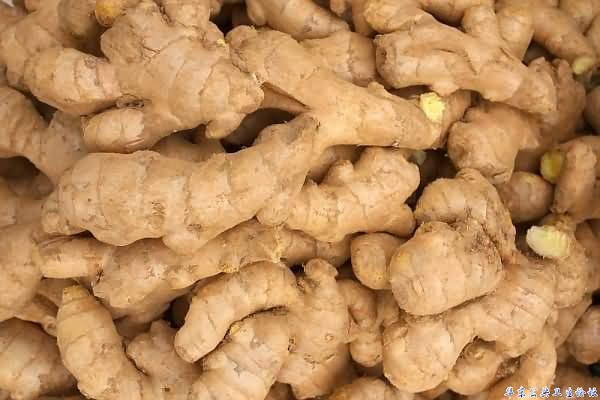
ATLANTA, Aug. 17 (合众国际社 UPI) 摘要_以往的研究表明,除了姜长达数百年的对抗恶心等消化问题外,其化合物6-姜酚和6-姜酚,有效对抗氧化、炎症和肿瘤。
乔治亚州立大学的研究人员最近发现,姜源颗粒减少炎症和加强修复小鼠的炎症性肠炎(Inflammatory Bowel Disease;IBD),表明它可以用于Crohn氏病和溃疡性结肠炎的治疗。
研究人员先用标准的厨房搅拌机将姜打碎,然后再用超高速离心法和超声波分散粉碎法,将姜粉碎成径为230纳米的颗粒物,它相当于人类头发丝300分之一。
姜的纳米颗粒能在结肠更有效地通过有IBD肠道粘膜细胞的吸收。减少炎症及与结肠炎相关的癌症。
生姜还有助于肠道的修复,促进健康细胞的存活和增殖,降低有害蛋白质的炎症反应。
研究人员说这种新剂型姜纳米颗粒物,能降低它潜在毒性和提高生产规模并改良了IBD防治的方式。
这项研究发表在生物材料杂志上。
ATLANTA, Aug. 17 (UPI) -- Ginger is often used for flavor while cooking, as well as to ease nausea, but researchers found nanoparticles derived from the root may have healing effects that ease inflammatory bowel disease, according to a new study.
Researchers at Georgia State University found ginger-derived nanoparticles reduced inflammation and enhanced intestinal repair in mice with IBD-type symptoms, suggesting it could be used for treatment of conditions like Crohn's disease and ulcerative colitis in humans.
Previous studies have shown compounds in ginger, including 6-gingerol and 6-shogaol, are active against oxidation, inflammation and cancer, in addition to ginger's centuries-long use against nausea and other digestion problems.
Researchers at Georgia State have been working to find plant-derived edible nanoparticles for use against disease, according to a press release, and looked toward ginger based on its well-known uses.
For the study, published in the journal Biomaterials, researchers blended ginger in a standard kitchen blender, then used super-high-speed centrifuging and ultrasonic dispersion to break the ginger into single pellets about 230 nanometers in diameter -- more than 300 times smaller than the width of a human hair.
In mice treated with the ginger nano-pellets, the researchers found their colons were efficiently targeted and the nanoparticles were absorbed mainly by cells in the lining of the intestine where IBD occurs. The particles reduced inflammation linked to colitis, as well as colitis-associated cancer.
The ginger also helped in the repair of the intestines, boosting survival and proliferation of healthy cells and lowering proteins that promote inflammation, preventing inflammation and the body's reaction to it.
"Nanoparticles derived from edible ginger, represent a novel, natural delivery mechanism for improving IBD prevention and treatment with an added benefit of overcoming limitations such as potential toxicity and limited production scale that are common with synthetic nanoparticles," the researchers wrote in the study.




